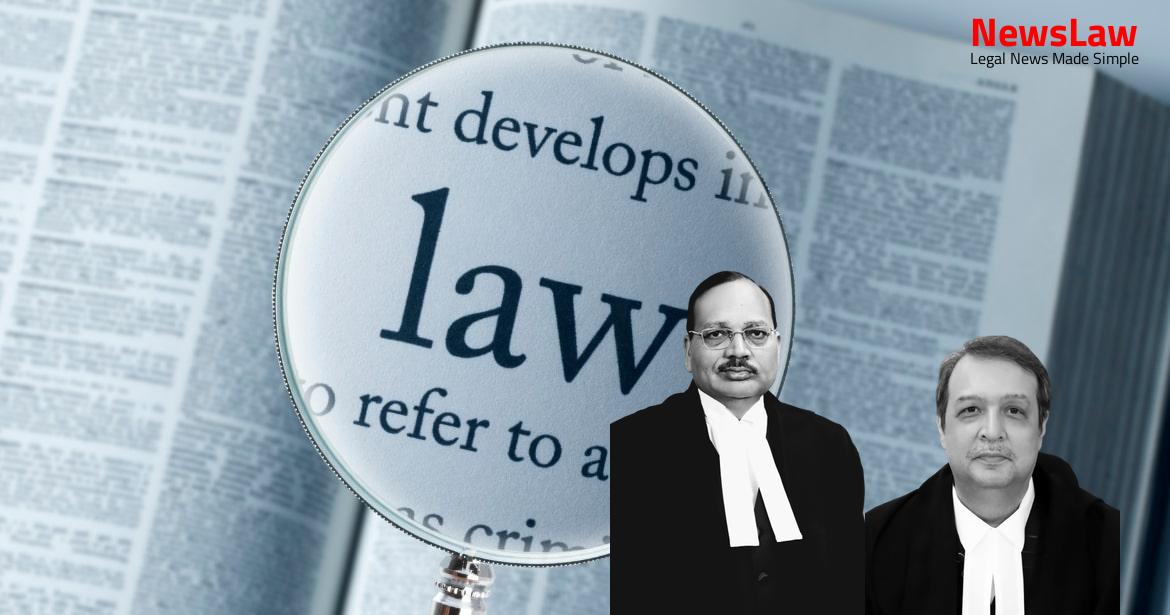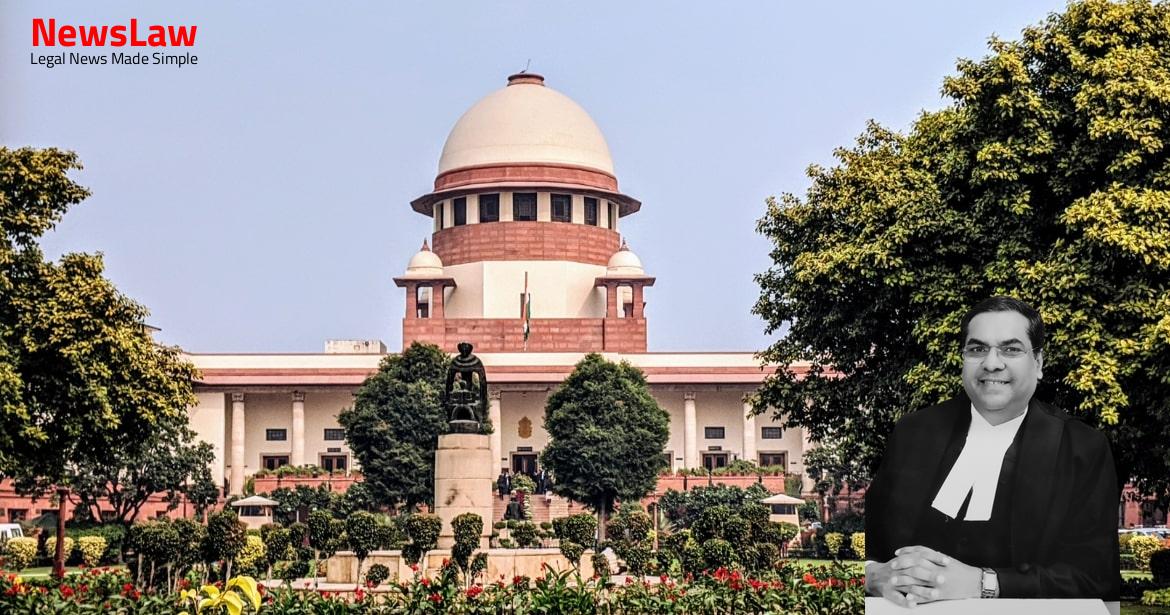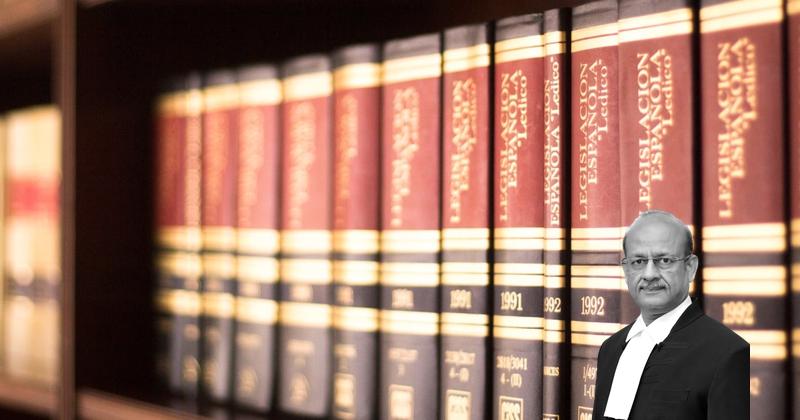The judgment and order dated 06.03.2021 passed by the High Court of Karnataka, Kalaburagi Bench in Criminal Appeal No.200027/2014 is under challenged before this Court, whereby the High Court has dismissed the said appeal filed by the appellants-accused against the judgment and order dated 11.02.2014 passed by the II Additional Sessions Judge, Bijapur (hereinafter referred to as “the Sessions Court”) in Sessions Case No.5/2011.
Annapurna, wife of Sadashiv Limbikai, mother of the deceased lodged a complaint before the Bableshwar Police Station alleging inter alia that her daughter Jayashree was given in marriage to accused no.3, Chandrashekhar.
However out of the 21 witnesses, PW-10, PW-11, PW-12 and PW-14 had turned hostile and not supported the case of the prosecution. Having regard to the said evidence, which has been also appreciated by the Sessions Court and High Court, there remains no shadow of doubt that the deceased was subjected to the harassment at the instance of the appellants-accused and that the prosecution had successfully brought home the charges levelled against them so far as the offence under Section 498A read with Section 34 of IPC was concerned.
Abetment of suicide.- If any person commits suicide, whoever abets the commission of such suicide, shall be punishable with imprisonment of either description for a term which may extend to ten years, and shall also be liable to fine.”
Also Read: https://newslaw.in/case-type/civil/courts-jurisdiction-in-re-appraising-arbitrators-findings/
What is “Abetment of a thing” has been described in Section 107 which reads as under: – “107.
State Represented by the Deputy Superintendent of Police, this Court has elaborately dealt with the provisions contained in Section 306 read with Section 107 IPC, and after discussing various earlier decisions has observed as under: – “41. A word uttered in the fit of anger or emotion without intending the consequences to actually follow cannot be said to be instigation.” In the said case this Court came to the conclusion that there is no evidence and material available on record wherefrom an inference of the appellant-accused having abetted commission of suicide by Seema (the appellant’s 6 wife therein) may necessarily be drawn. The Court opined that there should be intention to provoke, incite or encourage the doing of an act by the latter.
It also requires an active act or direct act which led the deceased to commit suicide seeing no option and this act must have been intended to push the deceased into such a position that he/she committed suicide.”
In view of the above, it is quite clear that in order to bring the case within the purview of ‘Abetment’ under Section 107 IPC, there has to be an evidence with regard to the instigation, conspiracy or intentional aid on 7 the part of the accused. So far as facts of the present case are concerned, the prosecution had sought to lead the evidence by examining the witnesses to prove that the deceased had committed suicide because of the mental and physical harassment of the appellants-accused. PW-4
Sadashiv Limbikai, the father of the deceased also had stated in his evidence before the Court that he did not know whether her daughter- Jayashree had committed suicide, or the accused had thrown her body into the well. Jayashree Masali though had opined that the death of the deceased was due to the drowning as a result of Asphyxia, there 9 was no opinion given by her nor any opinion was sought from her as to whether it was a suicide committed by the deceased or it was an accident by which she fell down in the well. Though it is true that as per Section 113A of the Evidence Act, when the question arises as to whether commission of suicide by a woman had been abetted by her husband or any relative of her husband, and when it is shown that she had committed suicide within a period of seven years from the date of her marriage and that her husband or such relative of her husband had subjected her to cruelty, the Court can presume, having regard to the other circumstances, that such suicide has been abetted by her husband or such relative of her husband.
Also Read: https://newslaw.in/case-type/civil/contrary-directions-in-issuance-of-letter-of-intent/
The legislative mandate is that where a woman commits suicide within seven years of her marriage and it is shown that her husband or any relative of her husband has subjected her to cruelty, the presumption as defined under Section 498-A IPC, may attract, having regard to all other circumstances of the case, that such suicide has been abetted by her husband or by such relative of her husband. and held that, unlike Section 113-B of the Evidence Act, a statutory presumption does not arise by operation of law merely on the proof of circumstances enumerated in Section 113-A of the Evidence Act.
Case Title: KASHIBAI Vs. THE STATE OF KARNATAKA (2023 INSC 722)
Case Number: Crl.A. No.-000627-000627 / 2023



